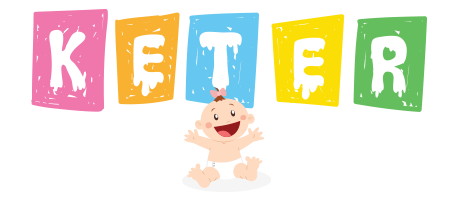
After birth, your baby's brain contains 100 billion neurons. During the first years, it develops a trillion connections between brain cells called nerve synapses. Great, isn't it?
But here's the thing: the rule of brain involvement is to use it or lose it. Synapses that are not "wired" are created by cutting and losing stimuli during the child's school years. Although a child's brain has complex neurological cables, such as the ability to learn any language, it is more manageable and vulnerable than an adult's brain. Giving your child a loving and language - enriched experience gives your child more opportunities to connect the nerve connections and pathways in his brain. In return, he will acquire rich language, thinking and planning skills
Want more books and reading ideas? Sign up for our School Parents Newsletter.
- Give your baby a good start before birth. Stay healthy during pregnancy and be aware that some medications can be harmful to your baby's brain in the womb. Studies have also shown that cigarette smoking during pregnancy is associated with lower reading scores in the fourth grade.
- Increase the conversation volume. Respond to the child's footsteps with joyful voices and slowly pull out the syllables in a loud voice as you shout phrases like "beautiful baby." This way of talking is called parentheses, and exaggerated facial expressions and extended vowels help the child absorb all the sounds of our language.
- Play hand-related games. Activities like cake, peephole, this little pig or even puppets will catch and distract your baby.
- Pay attention. When your child shows up, look at it and notice the things or events that interest them. This "common attention" confirms how important his interests and opinions are to you.
- Support your morning passion for books. Choose books with large, colorful pictures and share your child 's enjoyment of drawing certain pictures or even making sounds that match the book, like a ball when you see a fish.
- Let your child love his body. Studies have shown that children who do not touch it often have smaller brains than normal for their age, and the interaction with their proximity helps to focus attention on your speech.
- Choose toys that allow children to explore and communicate. Toys, such as snap-on or stackable cubes, help your child learn cause-and-effect relationships and think "if-if-yes". If he manages to stack the blocks, he will "wire" this information.
- Respond immediately when your baby is crying. Your calm grip and caresses and daily contact with the baby signal the emotional safety of the brain.
- Build confidence by being alert and focused. Instead, stay on the ground and spend time interacting with it. Children who are emotionally safe with you will be able to invest more energy in the pleasures of discovery, learning and discovery.
- Give her a body massage. This can reduce your child's stress levels and increase his or her feelings of well-being and emotional security. Loving involvement also promotes growth in young children.
- Ask your child for help with cleaning. This is a great way to practice categorization. Children learn that stuffed animals have nowhere to go for “night-night”; cars, trucks and other vehicles also have their own special storage space.
- Create a safe environment for your crawling baby or toddler. Your mobile child will begin to understand spatial parameters and vocabulary such as approximate, above, large, small, near and far, as well as the relationship between objects of different shapes and sizes.
- Sing those rhyming songs you remember. Whenever possible, add body movements and finger play. This helps your child associate sounds with large and small motor actions. Songs also enhance a child’s learning of rhythms, rhymes, and language patterns.
- Adjust your pace to your child's mood. Some children adapt easily to unusual situations: some are naughty and impulsive, others are shy. Your adoption will give her the comfort she needs to experiment and learn freely.
- Keep your meals positive. Say the names of foods out loud when your child eats. Express your pleasure as you learn how to sustain life. Food battles and grievances can, on the other hand, lead to negative brain patterns.
- Give clear answers to your child's actions. A young developing brain learns to understand the world if you respond to a child 's behavior in a predictable, positive and appropriate way. Be as consistent as possible.
- Use positive discipline. Create clear consequences without frightening or embarrassing your child. Keep the rules simple, consistent and age-appropriate for your child. It is unreasonable to expect a small child not to touch a glass vase on a coffee table, but it is reasonable to ask a child not to throw sand from a sandpit.
- Shape feelings of empathy for others. Use instinctive moments when someone. It helps not only with language and cognitive learning, but also with positive emotional abilities!
- Organize the game under supervision with chaotic materials. It can be water, sand and even mucus or slime! This will teach your child the properties of liquids, solids and mixtures - vital sensory experiences for the learning brain.
- Show joy and interest in your child. Your body language, your keen eyes, your attention to babbling and children's activities, and your sweet childhood and smile confirm the very loving nature of your little one.
